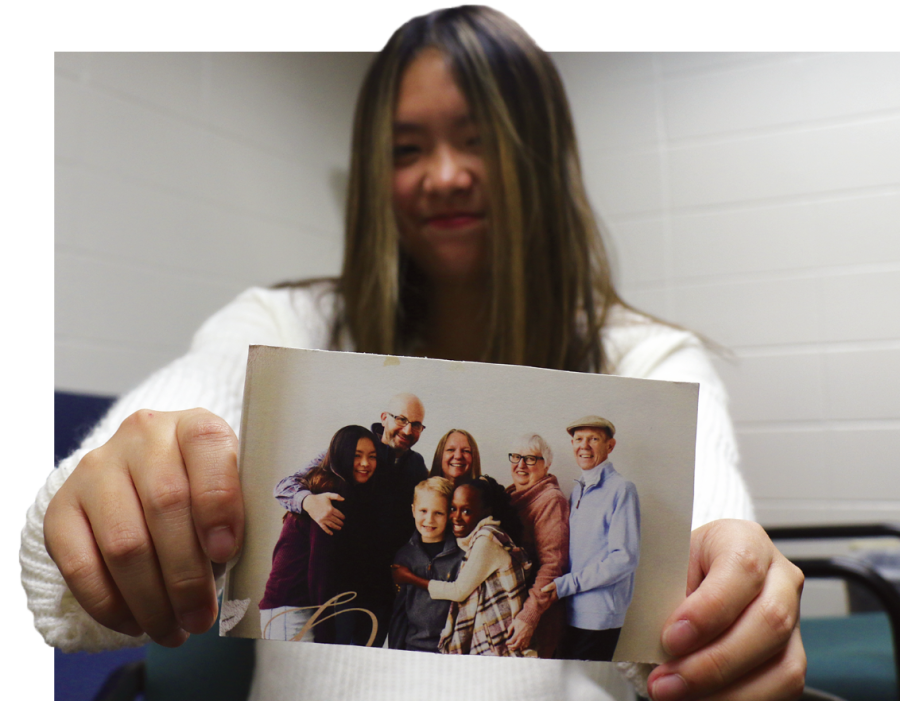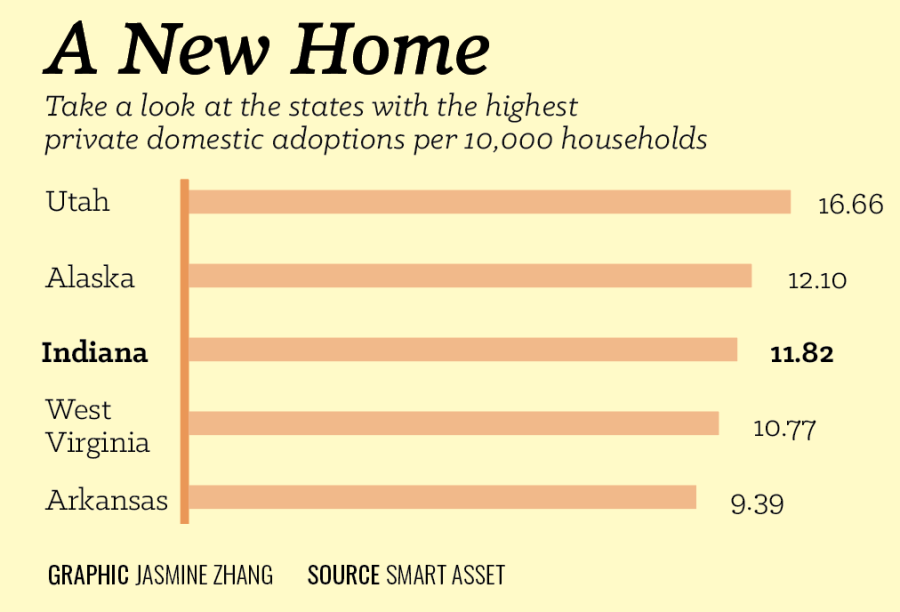Adoption Illusion
Students, teachers reflect on adoption, foster care process, address misconceptions during National Adoption Awareness Month

One of the key elements of Harry Potter’s character, in being adopted, is that he embodies the stereotypes on the adoption process and adopted children. Harry, who was greatly mistreated by his aunt and uncle after being adopted, reflects the misconceptions that still surround adoption holistically.
But Jasmine McCarty, who is adopted, said the actual difficulties of being an adopted child are very different from the stereotypes portrayed in popular culture.
She said, “I think one of the hardest things (about being adopted) is that want, that feeling of being wanted or being chosen. Because it’s so hard to now put a lot of trust into people thinking if they are going to stay or not, if they are going to do exactly what happened before or if you’ll be put in a position where you’re alone. So I think that’s one of the hardest things to get over and even just like, be aware of, you know, capsulate.”
McCarty said the stigma around adoption makes it difficult for transparency between those who adopted and those who are not.

McCarty is one of many students at this school who are adopted. Sophomore Olivia Jones said she shares McCarty’s perspective on common misconceptions surrounding adoption.
She said, “I feel like a lot of TV shows put a bad rep on adoption. It’s always surprising to people (when I tell them I’m adopted).”
According to AdoptUSKids, currently, more than 400,000 people across the United States are part of the foster care system—ranging from infants to people 21 years of age in some states. According to Tony Dunham, former foster parent and English teacher, these children are in need of loving adults who can provide them a stable home.
“I think my wife and I just saw there was a need and heard about there being a need for fostering as well. We had the space both emotionally and physically in our home to invite kids into. I think both my wife and I have the heart for that and again these kids are the most vulnerable part of our population,” he said.
Dunham also said many children are overlooked due to the lack of knowledge that surrounds the fostering or adoption process.
“I think foster kids are some of the most vulnerable people in our society. And I think that they are kids and they just need people to step in their lives and provide shelter and some of the most basic needs and a safe home. That’s why I think it’s so important,” Dunham said.
McCarty said she agreed; however, she also said it is important for adults to avoid developing a hero complex, a term often used by the media to describe the behavior of a person who seeks heroism or recognition by partaking in the adoption or fostering process.
“Putting yourself on a pedestal almost, saying that you are such a good person for being someone who adopts or putting yourself in a position where you think that you are above and that you’re saving people really needs to change. It really isn’t that way, a lot of people can be fine in adoption centers. It’s just (some) people do want to get the care that other kids get,” McCarty said.
someone who adopts or putting yourself in a position where you think that you are above and that you’re saving people really needs to change. It really isn’t that way, a lot of people can be fine in adoption centers. It’s just (some) people do want to get the care that other kids get,” McCarty said.
Jones said she hopes the media and society in general approaches the adoption process with more sensitivity.
She said, “Whenever people ask me where I was born and who my parents are, whenever I tell people I’m adopted, they are always like, ‘Who are your real parents?’ when my (adopted) parents are my real parents.”
“I think something that kind of went through me for a little bit was that feeling of shame, almost, for being with my family because some people will always ask me where I’m from or why my parents are different, like a different race, or what have you,” she said. “I think that’s something that I had to work on though—realizing that I shouldn’t be ashamed of being adopted. I’m sure a lot of (adopted people) are going through a time where it’s like, ‘I was not wanted and now I’m part of a family that does want me, but it’s not a family that I’m alike physically,’ so you just have this overhanging cloud of guilt for being (adopted) and being part of your family. I feel like (that feeling) has gotten less extreme over time, so that’s good, but I think bringing awareness that there is a lot of guilt that comes with being adopted is really important.”

